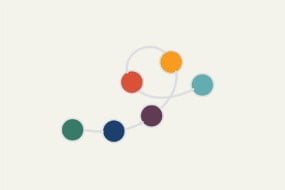An Introduction to Quality Engineering
Learn the fundamentals of quality engineering in this comprehensive course. Gain practical skills in measurement, data analysis, risk analysis, and more. Perfect for quality technicians, auditors, and manufacturing professionals. Sign up today!
What you’ll learn
- Typical roles and responsibilities of a quality engineer
- Fundamentals of part and process measurement
- Fundamental of calibration and gage error assessment
- The Failure Modes and Effects Analysis (FMEA)
- Process control plans
- The major strategies and ideas of root cause analysis and process improvement
- Overviews of the Lean Manufacturing and Six Sigma improvement frameworks
- Thoughts on training, management and leadership
Quality has often been described as “fitness for use” and “conformance to customer requirements.” And traditionally, this conformance has been verified through rigorous part inspection and testing. But the practice of quality professionals in assuring this “fitness for use” has evolved extensively since the middle of the 20th century through the increasing demands of high-risk industries like aerospace and automotive, and through the benefits of technological advancements like the microprocessor and connected technologies.
Today, Quality Engineers fulfill key technical leadership roles in most manufacturing organizations. An effective Quality Engineer possesses a wide range of skills from part and process measurement methods, to data analysis and visualization, to risk analysis and quality planning. And because of this broad skill base and interaction with diverse areas of a company, Quality Engineers are often well-positioned to fulfill higher level management roles.
In this course, “An Introduction to Quality Engineering”, you will gain a thorough and practical overview of the quality profession without getting bogged down in technical jargon. You will not only learn about the 12 KEY AREAS of quality engineering, but also gain practical concepts in each. In this course, you will learn key skills and strategies in:
Part Measurement
Process Measurement
Calibration
Assessing Measurement Error
Data Analysis and Visualization
Risk Analysis
Quality Planning
Quality Systems Development
Quality Auditing
Root Cause Analysis and Process Improvement
Training
Leadership
This class is designed for the quality, manufacturing or technically-adept professional looking to expand their skill set into this important field of study. “An Introduction to Quality Engineering” will give you a foundational understanding of these key area and prepare you for more advanced training.
Here’s what Udemy students are saying about “An Introduction to Quality Engineering”:
“Excellent introduction to QE for newcomers and a great refresher for more experienced QE professionals” – Daryle S.
“This course is a great review of the skills I learned in my Green and Black belt Lean Six Sigma courses.” – Kris S.
“Very good material for new and aspiring QE, and also for well-seasoned Q professionals, as a refresher course.” – Bien L.
Sign up today to begin your journey into the field of quality engineering!!
Who this course is for:
- Quality technicians
- Quality auditors
- Industrial and manufacturing engineers
- Lab technicians
- Manufacturing professionals
User Reviews
Be the first to review “An Introduction to Quality Engineering”
You must be logged in to post a review.







There are no reviews yet.